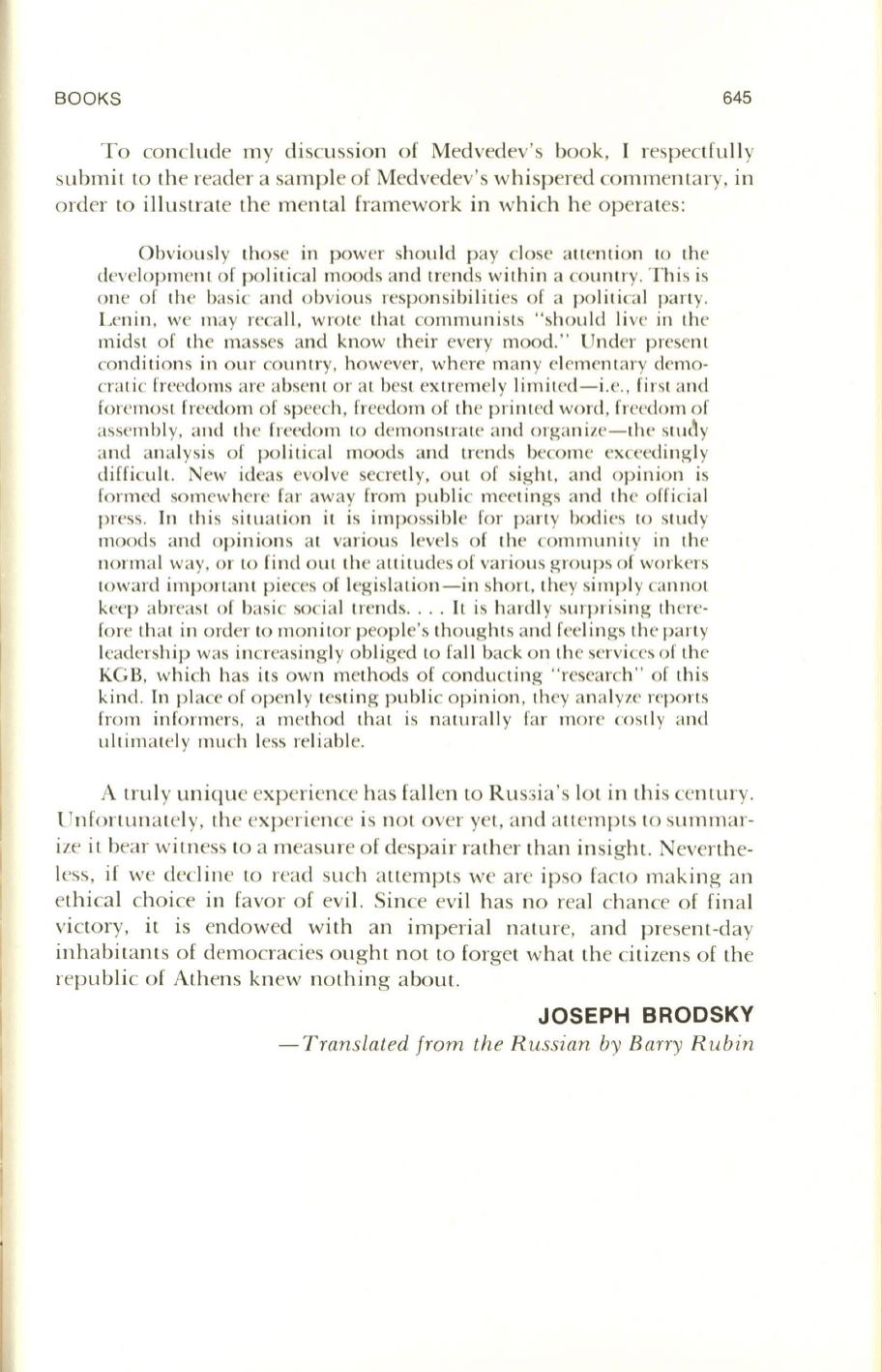
BOOKS
645
To conclude my di scussion of Medvedev's book, I respectfull y
submit to the reader a sampl e of Medvedev's whi spered commentary, in
order to illu stra te the mental framewo rk in which he opera tes:
Obviously those in power should pay close attenti on to the
development of po liti cal moods and trends within a country. T hi s is
one of th e bas ic and o bvious responsibiliti es of a po liti ca l party.
Lenin , we may reca ll, wrote th at communi sts "should li ve in th e
midst of the masses and know their every mood. " Under present
conditi on s in our country, however, where man y elementary demo–
crati c freedoms are absent or at best extremely limited-i. e., fir st and
foremost freedom of speech, freedom o f the printed word , freedom of
assembl y, and th e freedom to demon strate and o rgan ize-the
stu~y
and ana lysis of po litica l moods and trends become exceeding ly
diffi cult. New ideas evolve secretl y, out of sight, and opinion is
formed somewhere far away from public meetings and th e o ffi cial
press. In thi s situa ti on it is impossibl e for party bodi es to study
moods and opinio ns at various levels o f the community in th e
normal way, or to find o ut th e attitudes of various groups of workers
toward important pieces of legisla tion-in short, they simpl y canno t
keep abreast of bas ic social trends. . .. It is hardl y surpri sing there–
fo re that in o rder to monitor peopl e's thoughts and feelings th e party
leadership was increas ingly obliged to fall back on th e servi ces of the
KGB, whi ch has its own methods of conducting " resea rch" of thi s
kind. In pl ace of o penly testin g public opinion , they analyze repo rts
from informers, a method th at is natura ll y far more costl y ancl
ultimately mu ch less reli abl e.
A trul y unique experi ence has fall en
to
Ru s3 ia 's lo t in this century.
Unfo rtun a tely, the experi ence is no t over yet, and a ttempts to summar–
ize it bear witness to a measure of despair ra ther than in sight. Neverthe–
less, if we declin e to read such a ttempts we a re ipso fac to makin g an
ethi cal cho ice in favo r o f evil. Since evil h as no rea l chance o f fin al
victory, it is endowed with an imperi al na ture, and present-day
inhabitants of democrac ies ought not to forget wha t the citizens o f the
republic of Ath ens knew no thing about.
JOSEPH BRODSKY
- Tran slated from the R ussian by Barry Rub in


